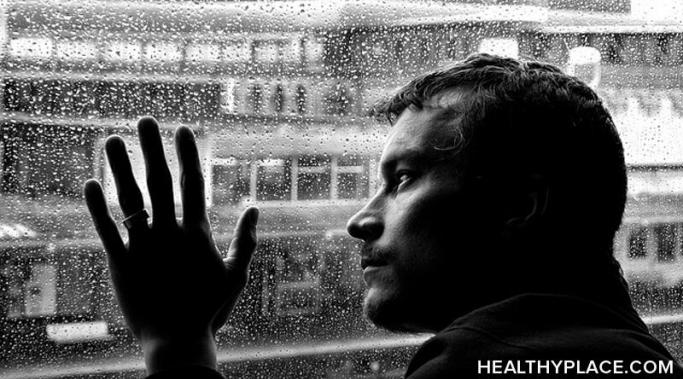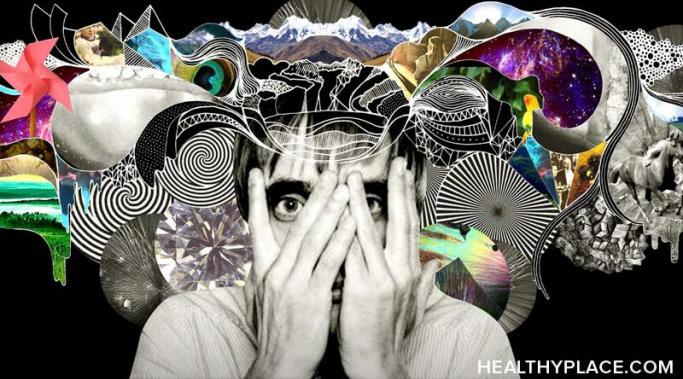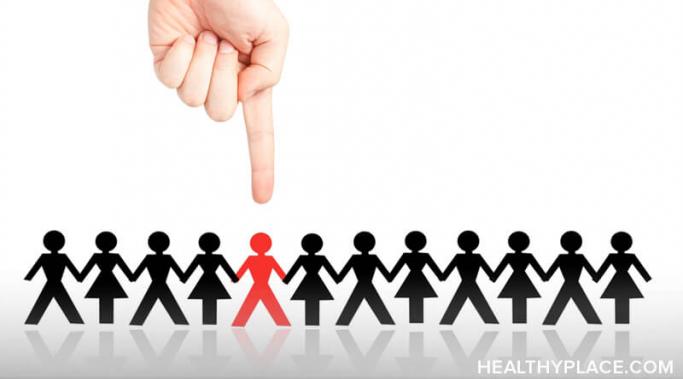Some people say I'm negative about bipolar disorder. Some people say that calling my bipolar disorder a chronic illness and anticipating the awful effects of bipolar disorder to come is negative. I disagree. I feel that I'm realistic about my own bipolar disorder. Being negative about bipolar disorder is different.
How Others See Bipolar
Why won't many psychiatrists listen to patients? Your psychiatrist is supposed to be helping you. Your psychiatrist is supposed to be on your side. You and your psychiatrist are supposed to be a team to fight mental illness together. But this just doesn't always turn out to be true. So many of us have, in fact, experienced the opposite. So why is it that psychiatrists won't listen to patients?
There is this myth of a "nervous breakdown." We see this term in news report, press releases and even in our own families -- "Oh, you know Aunt June? She suffered a nervous breakdown." But what are people talking about when they say someone had a nervous breakdown. Clearly, something happened but the truth of the matter the idea of a "nervous breakdown" is a myth.
I'm tired of feeling sorry that I have bipolar disorder. I don't mean feeling sorry for myself -- that's a different thing -- I mean feeling sorry for the very fact that I am sick. I mean feeling sorry for the very fact that I am the one with the serious mental illness. And this feeling sorry about bipolar disorder is wearing on one's being. I, for one, don't want to feel sorry that I have bipolar disorder anymore.
It can be challenging to be a friend of a person with bipolar disorder. I freely admit this. I know that my life is difficult for me to deal with and, certainly, it can be difficult for anyone else. Nevertheless, friendship with a person who has bipolar disorder can be just as rewarding as any other friendship.
I am a person with extreme willpower and this helps my mental illness. I know this. It’s obvious. Willpower affects every aspect of my life, of course. But people may think I have no willpower because of my mental illness. This is because people overestimate how much willpower can help a mental illness.
I’m sorry to say I have found bipolar disorder requires a fake smile pretty much on demand, every day. We all have fake smiles for different situations but mine need to be at the ready, at all times, because I use them more than others. Fake smiles with bipolar disorder suck, but what can I say, I need them.
People like to criticize me about my bipolar disorder treatment and my guess is, many of you have experienced criticism about your bipolar disorder treatment, too. Sometimes people feel like their criticisms are helpful and sometimes, I swear, the people do it just to be dogmatic or cruel. No matter what their motivation is, though, it isn’t helpful and can be very harmful. If you get criticism about your bipolar disorder treatment, here’s how to handle it.
People often say to those suffering with bipolar disorder, “Others have it worse than you.” This is not a helpful statement. We know that others have it worse than us. In fact, others with bipolar have it worse than us; that’s just math. But the fact that others have it worse than us is absolutely irrelevant to our suffering with bipolar.
Recently, someone said I was pitying myself because I have bipolar disorder, and this person was judging me very negatively for it. The person said I was having a bipolar pity party, if you will. Not surprisingly, I felt this notion was far off the mark. I feel suggesting that pity about bipolar disorder from the self or others is always negative, is just plain wrong.









